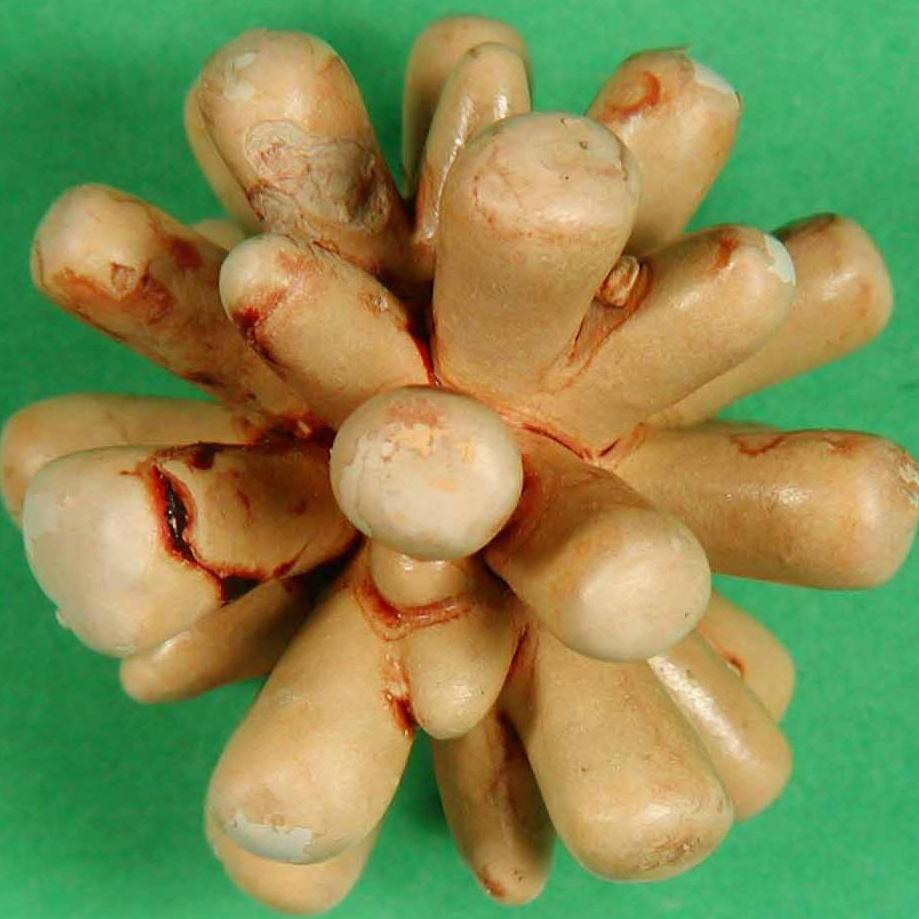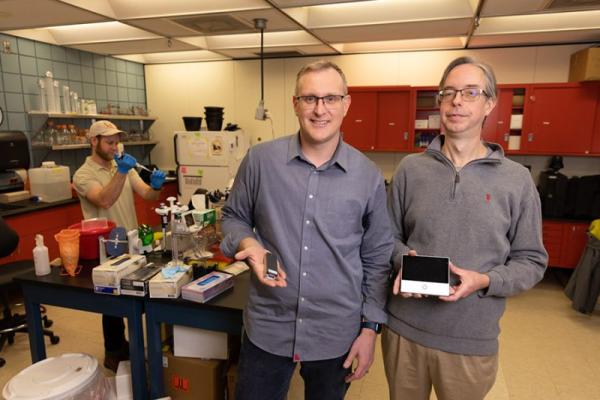UMN center helps pet owners save money
August 18, 2021

Urinary stones are painful for pets but eliminating them does not have to be expensive for pet owners. Lower-cost, minimally invasive techniques developed over the past 40 years by veterinarians at the University of Minnesota Urolith Center are available for most stone types and patients.
Two to three percent of cats and dogs get urinary stones. The traditional methods for treating a pet with urinary stones involve surgery. “There are more effective, more compassionate treatments than surgery for many patients with urinary stones,” says Jody Lulich, DVM, PhD, DACVIM. He frequently recommends nutritional changes that may dissolve stones and reduce the risk of recurrence. If removal is necessary, laser lithotripsy has proven to be quite a successful method. “You do not need to cut into healthy tissue. The laser pulverizes the stones into minute fragments that can be easily removed without surgery, and animals go home the same day with no restrictions on activity and no cones around their heads.” At present, Dr. Lulich and his colleague, Eva Furrow,VMD, PhD, DACVIM, are the only veterinarians in Minnesota that perform laser lithotripsy.
The Center has analyzed over 1.5 million stones sent by veterinarians from around the world. The database is the largest of its kind in both veterinary and human medicine.
What is well understood, thanks to the Urolith Center’s work, is that the presence of stones in the kidney, bladder or ureters can be the first indicator of an underlying disease. Some stones result from a genetic predisposition. “Genetic tests can predict an animal’s risk,” Dr. Lulich says, “and urinalysis tests can identify the presence of crystals in urine—a precursor to stones.” Research has identified the breeds, genders and ages of cats and dogs that may be susceptible to stone formation.
Clinicians at the Minnesota Urolith Center are working to address the formation of calcium oxalate stones in dogs and cats. Their goal is to find a safe way to dissolve these stones without surgery. “Calcium oxalate stones are highly recurrent, and a common contributor to kidney failure in cats.”
Seventy percent of the stones submitted to the Urolith Center for analysis come from veterinarians in the United States. Samples have been received from every continent except Antarctica. For every feline sample submitted, the Center receives five canine samples.
The Minnesota Urolith Center is committed to the prevention and cure of urinary diseases. Founded in 1981, the Center does not charge for its services due to the generous financial support of Hill’s Pet Nutrition, pet owners and veterinary professionals.


